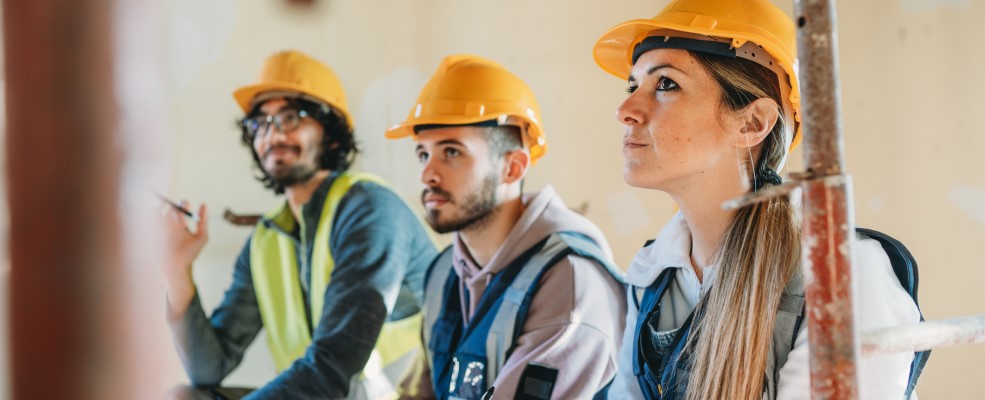As part of my research on the new Building social value and fair work in the construction industry in Wales UKRI ESRC-funded WISERD Project, I’m exploring how the construction sector can create real opportunities for people facing barriers to employment. One powerful example of this in action is SibiNet, an initiative that’s opening doors for people from Black and ethnic minority communities.
The UK construction industry continues to face challenges around diversity and inclusion. While around 13.8% of the UK population is from a minority ethnic background, only 5.4% of construction workers are from Black, Asian, or mixed-heritage communities. This underrepresentation reflects barriers such as limited access to training, a lack of visible role models, and a sense of not belonging.
Muhammad, the founder of SibiNet, is familiar with these challenges firsthand. Starting as a site labourer in 2019, he quickly realised that few people in leadership looked like him. Feeling unsupported and without a clear path forward, he left the industry to pursue a degree in business management. But his experience stayed with him—and shaped his future.
While at university, Muhammad became a youth leader at his local community centre. He saw the same barriers he had faced reflected in the lives of young people: limited opportunities, low awareness of career paths, and a lack of confidence. That’s when the idea for SibiNet was born—a bridge between the construction industry and people from Black and ethnic minority communities.
For Muhammad, social value isn’t about ticking boxes. He uses a simple analogy: giving out water bottles helps in the short term, but digging a well creates lasting change. SibiNet is about digging wells—creating long-term, community-driven pathways into construction.
Muhammad reached out to organisations like CITB and GoConstruct, inviting professionals to share their stories and highlight the range of careers available. The first SibiNet event aimed to raise awareness and break down stereotypes. From that, a mentorship programme emerged, offering one-on-one guidance to help people identify their strengths and explore roles that suited them.
Partnerships have been key. SibiNet worked with a local college to deliver a three-month training course, followed by a site visit to a major hospital project with Balfour Beatty. This wasn’t just a tour—it was a hands-on experience that led to real job opportunities, supported by a local contractor.
During Ramadan, SibiNet hosted iftar meals with the support of companies such as Eric Wright Group and Costain. A planned event for 100 attendees drew over 200, including contractors who shared their own journeys. The result? 14 work experience placements were offered to local young people.
Mentorship remains central to SibiNet’s approach. Muhammad, now supports young people in developing practical skills such as time management and teamwork, while also helping them navigate cultural barriers. This kind of support is vital—not just for recruitment, but for retention.
Crucially, Muhammad believes that communities themselves must define social value. Data can highlight gaps, but real impact comes from listening and taking action. What does opportunity look like to the people you’re trying to reach? What support do they actually need?
SibiNet’s work demonstrates how social value can be delivered in community-led, culturally relevant, and deeply impactful ways. It’s a model that aligns closely with the goals of the Building Social Value and Fair Work project—demonstrating how construction can be a force for inclusion and opportunity.
If you’re involved in a project that’s making a difference—or know one that should be highlighted—please get in touch with Jemma Bridgeman at BridgemanJ1@cardiff.ac.uk.
Image credit: FilippoBacci via iStock

